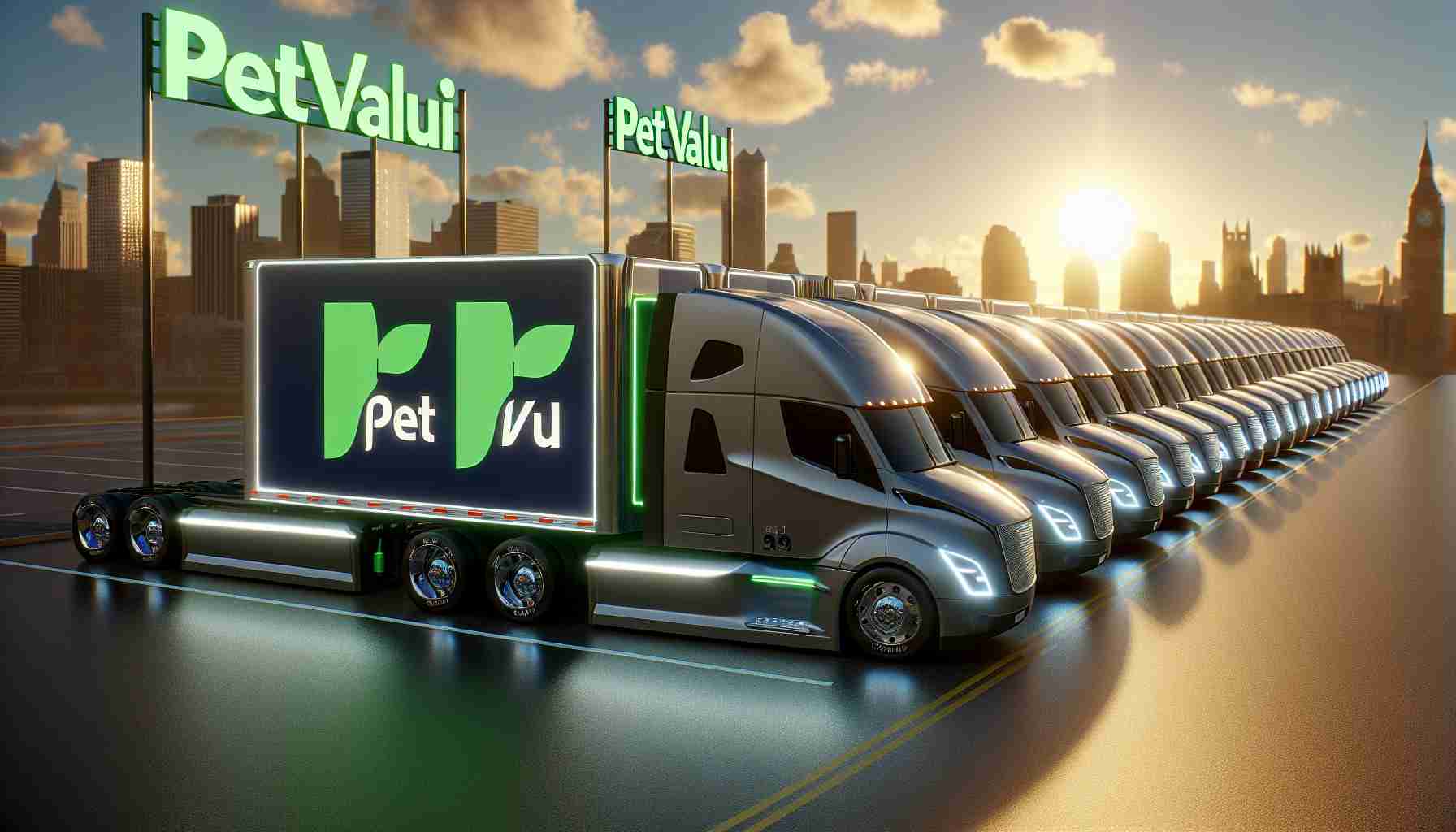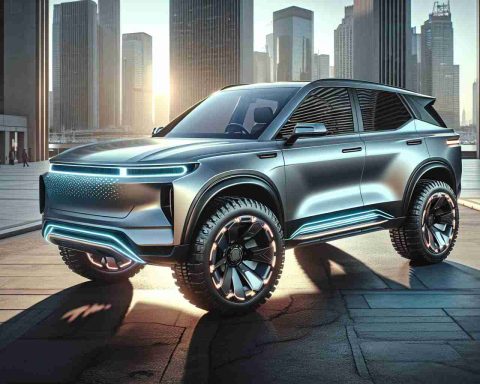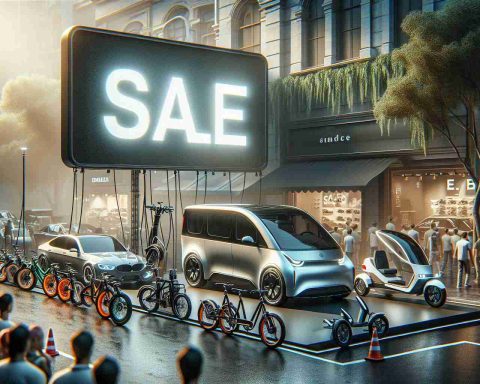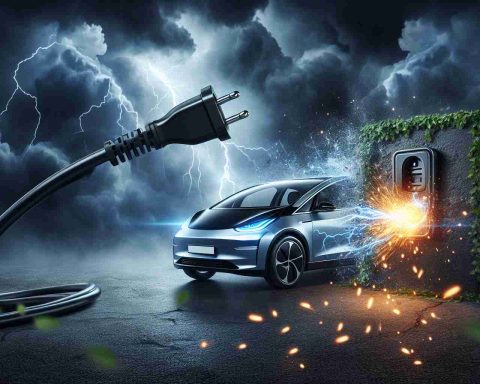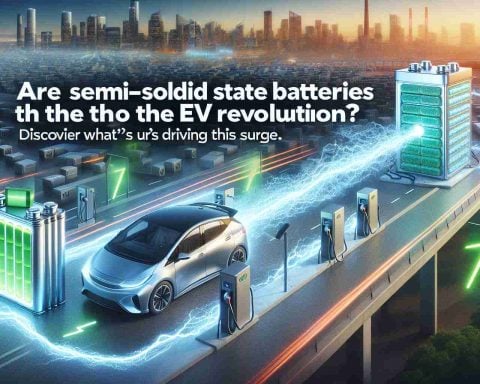- Pet Valu is enhancing its logistics with electric Volvo VNR trucks, marking a significant move towards sustainability.
- The initiative aims to reduce environmental impact by eliminating over 25,000 liters of diesel and 62 tonnes of CO2 emissions annually.
- Each truck features a 565 kWh battery and can travel up to 442 kilometers on a single charge.
- Pet Valu’s transition is supported by funding opportunities, showcasing a model for cost management in electric vehicle adoption.
- Matthew Blackman from Volvo Trucks Canada sees this as a step towards a healthier planet and improved supply chain efficiency.
- Pet Valu is setting a sustainability standard in the pet retail sector, prompting others to consider similar actions.
Pet Valu is making waves in the Canadian pet retail industry by bolstering its logistics fleet with two brand-new, whisper-quiet Volvo VNR Electric semi trucks. This bold move is part of their committed journey toward a more efficient and sustainable supply chain.
As a leader in providing pet food, toys, and essential supplies, Pet Valu recognizes the importance of keeping both pets and the planet healthy. These innovative electric trucks, boasting zero tailpipe emissions, are set to eliminate over 25,000 liters of diesel fuel and over 62 tonnes of CO2 emissions annually. The company is eager to test the performance of these vehicles while considering further electrification of their fleet.
Equipped with a robust 565 kWh battery pack, each truck has an impressive operating range of up to 442 kilometers (275 miles) on a single charge. After a nightly charge at their Surrey distribution center, they’ll be ready to hit the road again, supporting deliveries while safeguarding the environment.
Pet Valu received assistance from Volvo Trucks to tap into funding opportunities aimed at offsetting the high initial costs of these electric wonders, highlighting a path others in the industry can follow.
Matthew Blackman, the managing director for Volvo Trucks Canada, expressed enthusiasm for Pet Valu’s initiative, emphasizing that these trucks will not only enhance their supply chain but also contribute to a healthier planet.
In embracing this eco-friendly technology, Pet Valu is setting a precedent for sustainability in the pet industry. Will other retailers follow suit? The journey to a greener future is just beginning!
Revolutionizing Delivery: How Pet Valu is Leading the Charge in Sustainable Pet Retail
Introduction
Pet Valu is making significant strides in the pet retail space by adopting a more sustainable logistics approach with the introduction of two Volvo VNR Electric semi trucks. This shift not only enhances their supply chain efficiency but sets a benchmark for sustainability in the pet industry. Here’s a look at what this means for the company and the broader market.
Innovations in Electric Logistics
Pet Valu’s investment in electric semi-trucks represents a forward-looking approach that is in line with global sustainability trends. These trucks are equipped with a 565 kWh battery pack, allowing them to travel up to 442 kilometers (275 miles) on a single charge.
# Benefits of Electric Trucks:
– Zero Emissions: Contributes to improved air quality by eliminating over 62 tonnes of CO2 emissions annually.
– Cost-Efficiency: The reduction of over 25,000 liters of diesel fuel can lead to significant long-term savings.
– Quiet Operations: The whisper-quiet design reduces noise pollution, enhancing the delivery experience, especially in residential areas.
Market Insights and Forecasts
The global market for electric trucks is projected to grow significantly. As businesses increasingly adopt electric vehicles, the following key trends are emerging:
1. Increased Investment: Companies are looking for ways to offset the initial costs associated with electric vehicle technology, leading to more partnerships with manufacturers like Volvo Trucks.
2. Technology Advancements: Innovations in battery technology are expected to improve range and efficiency over the coming years, making electric trucks more viable for various industries.
3. Regulatory Changes: Governments are implementing stricter emissions targets, driving more companies toward electrification.
Pros and Cons of Electric Fleet Adoption
# Pros:
– Environmental Benefits: Reduced carbon footprint and improved sustainability image.
– Long-Term Savings: Lower fuel and maintenance costs over time.
– Enhanced Corporate Responsibility: Aligns with consumer demand for eco-friendly practices.
# Cons:
– Initial Investment: High upfront costs can be a barrier for smaller companies.
– Charging Infrastructure: Dependence on reliable charging options can hinder logistics.
– Limited Range: Current models may not be suitable for longer routes without recharging.
Key Questions
1. How does the performance of electric trucks compare to traditional diesel trucks in real-world applications?
– Electric trucks can achieve comparable delivery capabilities while greatly reducing emissions. However, performance depends on the specific routes and weights being transported.
2. What steps are being taken to expand charging infrastructure for electric trucks?
– Companies and governments are collaborating to develop more comprehensive charging networks to support electric fleets, addressing one of the primary concerns of potential electric truck adopters.
3. Will other retailers adopt similar sustainable practices as Pet Valu?
– As environmental concerns grow, it is likely that more retailers will explore electric vehicles and other sustainability initiatives, particularly as technology advances and funding opportunities increase.
Conclusion
Pet Valu’s innovative step towards adopting electric logistics signifies a major shift in the pet retail market. By leading with sustainable practices, they not only improve their supply chain but also encourage others to follow suit in fostering a greener future.
For more information on sustainability initiatives in the pet industry, visit Pet Valu.
